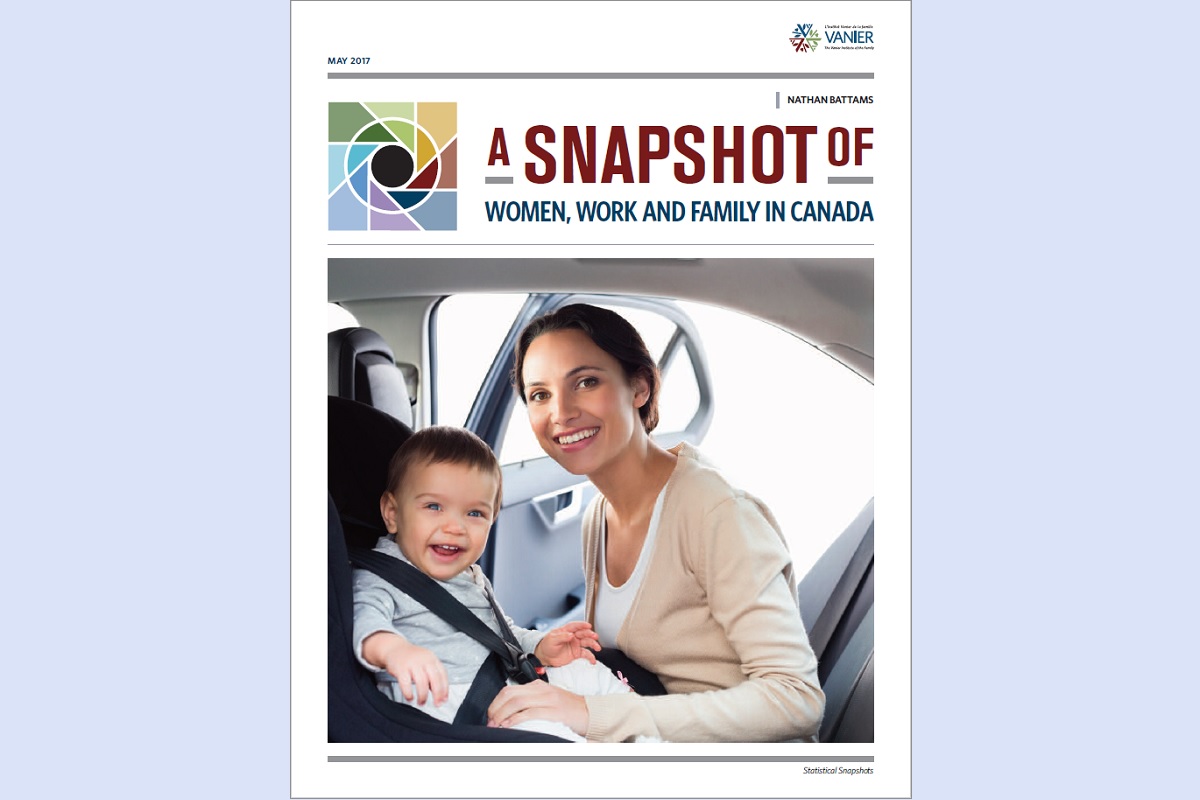
May 9, 2017
A Snapshot of Women, Work and Family in Canada
Canada is home to more than 18 million women (9.8 million of whom are mothers), many of whom fulfill multiple responsibilities at home, at work and in the community. Over many generations, women in Canada have had diverse employment experiences that continue to evolve and change. These experiences have differed significantly from those of men, and there is a great deal of diversity in the experiences among women, which are impacted by a variety of factors including (but not limited to) cultural norms and expectations, family status, disability and a variety of demographic characteristics.
To explore the diverse and evolving work and family experiences of women in Canada, the Vanier Institute of the Family has created A Snapshot of Women, Work and Family in Canada. This publication is a companion piece to our Fifty Years of Women, Work and Family in Canada timeline, providing visually engaging data about the diverse work and family experiences of women across Canada.
Highlights include:
- The share of all core working-aged women (25 to 54 years) who are in the labour force has increased significantly across generations, from 35% in 1964 to 82% in 2016.
- Employment rates vary among different groups of core working-aged women, including those who are recently immigrated (53%), women reporting an Aboriginal identity (67%) and those living with a disability (52% to 56%, depending on the age subgroup).
- On average, women without children earn 12% more per hour than those with children – a wage gap sometimes referred to as the “mommy tax.”
- Nearly one-third (32%) of women aged 25 to 44 who were employed part-time in 2016 said that they were working part-time because they were caring for children.
- 70% of mothers with children aged 5 and under were employed in 2015, compared with only 32% in 1976.
- In 2013, 11% of all recent mothers inside Quebec and 36% in the rest of Canada, respectively, did not receive maternity and/or parental leave benefits – a difference attributed to the various EI eligibility regimes in the provinces.
- 72% of all surveyed mothers in Canada report being satisfied with their work–life balance, but this rate falls to 63% for those who are also caregivers.
- 75% of working mothers with a flexible work schedule report being satisfied with their work–life balance – a rate that falls to 69% for those without flexibility.
This bilingual resource will be updated periodically as new data emerges. Sign up for our monthly e-newsletter to find out about updates, as well as other news about publications, projects and initiatives from the Vanier Institute.
Download A Snapshot of Women, Work and Family in Canada from the Vanier Institute of the Family.
Published on May 9, 2017
Stay in the know
InfoVanier
A monthly newsletter of research, resources, and events
Linktree
Get alerts on new Vanier Institute publications, events, and announcements
